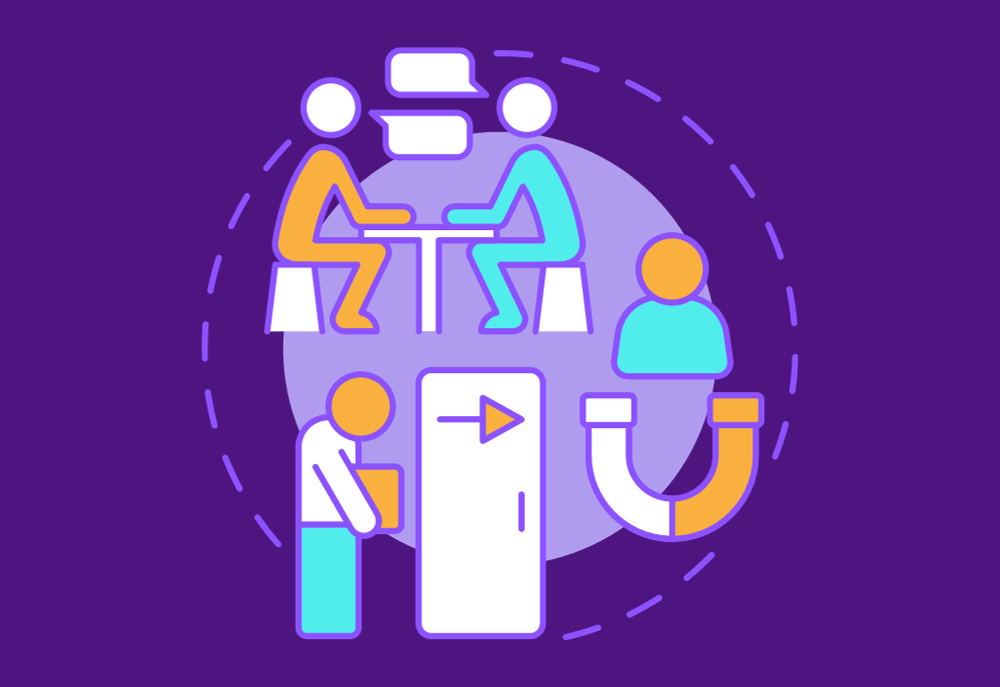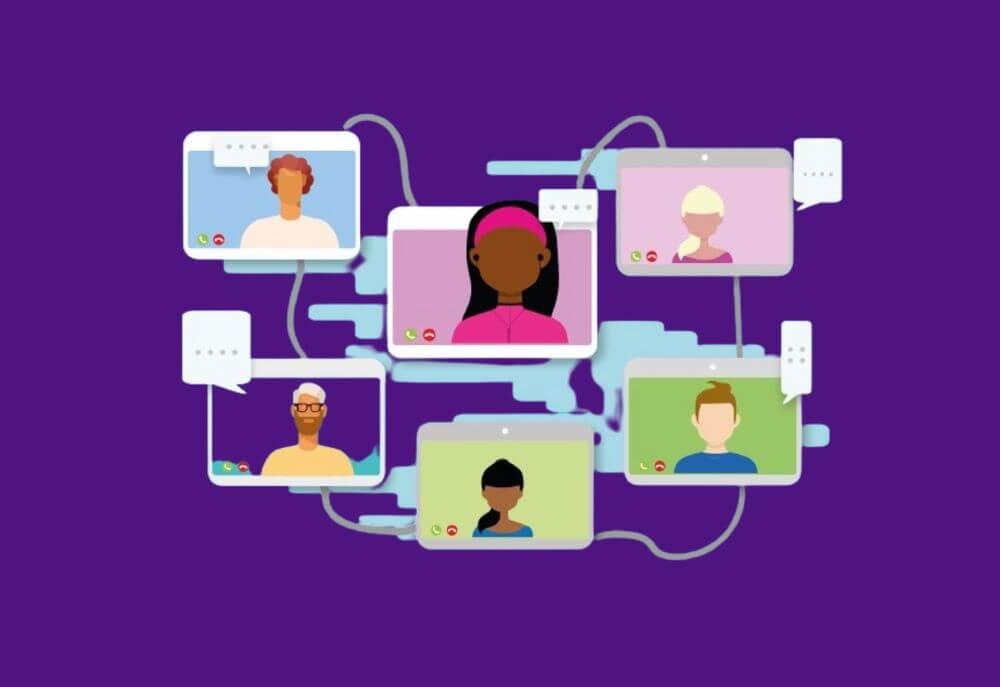As your company strives for continuous improvement, understanding the factors contributing to employee turnover is crucial. Exit interviews can help you understand why this happens. This article explores the significance of an employee exit interview with best practices that HR departments and HR knowledge advisors can employ to enhance employee retention rates and foster a better workplace.
The Importance of Exit Interviews
Employees quit their jobs, and this happens all the time. But keep in mind that insights gained from exit interviews can be valuable. Companies can gather honest feedback from departing employees by using a well-structured exit interview template. This will provide a unique opportunity to identify areas for improvement and implement necessary changes. This process not only contributes to a more positive work environment but also aids in shaping organizational culture.
Exit Interview Template Best Practices
Creating an effective exit interview template involves asking the right questions to gather valuable information. The template should include fields for the employee’s name, start date, job title, and other pertinent details. Moreover, incorporating questions about the work environment, leadership, and reasons for leaving can provide deeper insights.
To ensure the exit interview process is constructive, HR departments and HR knowledge advisors should use exit interviews to initiate a dialogue with current employees. This approach can help address concerns in real-time and proactively work towards a better workplace.
Using Exit Interviews Strategically
Keep in mind to strategically use the information you gathered from exit interviews. You can develop an action plan to address specific concerns and improve employee satisfaction. HR departments can also utilize the exit interview form template to identify patterns and trends that may impact employee retention rates. By adopting different ways to analyze responses, you can tailor your strategies for continuous improvement.
When should you schedule an exit interview?
Scheduling an exit interview at the right time is essential. This will help the departing employee and your organization benefit from the process. Ideally, the exit interview should be scheduled:
- Before the Last Day: Aim to conduct the exit interview a week or two before the departing employee’s last day. This allows for a smoother transition and ensures the feedback is fresh in the employee’s mind.
- After Notice is Given: Schedule the exit interview after the employee formally gives notice. This helps understand the reasons for leaving and address any concerns before the employee departs.
- When the Employee is Comfortable: Choose a time that works for the departing employee. Some individuals prefer the exit interview closer to their last day, while others want it earlier. Be flexible and considerate of their preferences.
- In a Private Setting: Ensure that the exit interview takes place in a private and confidential setting. This encourages employees to be more open and honest about their experiences and reasons for leaving.
- During Working Hours: Schedule the exit interview during regular working hours to ensure that both the employee and the HR representative have sufficient time and focus for the conversation.
- Before Departure Procedures: Conduct the exit interview before the employee goes through the final departure procedures, such as returning equipment and keys or completing paperwork. This ensures that administrative matters maintain the opportunity for meaningful conversation.
What should you avoid saying in an exit interview?
As a professional conducting an exit interview, you should create a supportive and open environment. However, there are certain things you should avoid saying to ensure the process remains constructive and respectful:
- Defensive Responses: Resist the urge to become defensive if the departing employee shares negative feedback. Instead, acknowledge their perspective and express gratitude for their honesty.
- Dismissing Concerns: Avoid dismissing or downplaying the employee’s concerns. Even if you disagree, acknowledge their feelings and assure them their feedback will be taken seriously.
- Promises You Can’t Keep: Be cautious about making promises or commitments that you may not be able to fulfill. If changes are possible, communicate them appropriately, but avoid overcommitting.
- Blaming Others: Refrain from blaming other individuals or departments for the issues raised by the departing employee. Focus on addressing the concerns and finding solutions rather than assigning blame.
- Minimizing Their Experience: Avoid downplaying the departing employee’s experience, even if their tenure was short. Employees’ perspectives are valuable, and feedback can contribute to positive organizational changes.
- Sharing Confidential Information: Respect confidentiality. Avoid discussing details about other employees or sensitive HR matters unless necessary and appropriate.
- Judgmental Language: Maintain a neutral and non-judgmental tone during the interview. Avoid using language that may make the departing employee feel judged or criticized.
Remember, the goal of the exit interview is to gather valuable insights and foster a positive relationship with departing employees. You can contribute to a more open and trusting work environment by steering clear of these pitfalls.
What are 5 typical questions asked during an exit interview?
- What influenced your decision to leave?
- How would you describe the work environment?
- Was the provided leadership effective?
- Were there positive aspects that influenced your decision to stay?
- In what ways could the organization have created a better workplace for you?
What is the exit interview format?
The exit interview format is a structured framework to gather valuable information from departing employees. While specific formats may vary, a comprehensive exit interview typically includes the following components:
Employee Information:
- Full name
- Job title
- Department
- Start date
- Last working day
Reasons for Leaving:
- Understand the primary reasons for the employee’s departure.
- Was it a career opportunity, personal reasons, or dissatisfaction with the current role?
Work Environment:
- Evaluate the employee’s perception of the work environment.
- Were there challenges or positive aspects related to the workplace culture?
Leadership and Management:
- Assess the effectiveness of provided leadership.
- Were expectations clear, and was there effective communication from leadership?
Job Satisfaction:
- Explore the employee’s satisfaction with their role.
- What aspects of the job were fulfilling, and were there areas that could be improved?
Training and Development:
- Inquire about opportunities for professional growth and development.
- Did the employee feel adequately supported in their career advancement?
Organizational Culture:
- Probe into the alignment of the employee with the organizational culture.
- Were there aspects of the company’s values and mission that resonated with the employee?
Suggestions for Improvement:
- Encourage the departing employee to provide constructive suggestions.
- How could the organization enhance the employee experience for future team members?
Future Plans:
- Inquire about the employee’s future career plans.
- Does a specific career goal drive the departure, and does the employee anticipate any challenges in their new role?
Additional Comments:
- Allow space for any additional comments or thoughts the employee may want to share.
Exit Interview Template
You can customize the survey to suit your needs, industry nuances, and organizational culture. Here’s a simplified template version that you can use as a starting point:
Exit Interview Survey Template:
Personal Information:
- Full Name:
- Job Title:
- Department:
- Last Working Day:
Reasons for Leaving:
What influenced your decision to leave the company?
- Career advancement opportunities
- Personal reasons
- Dissatisfaction with the current role
- Other (please specify)
Work Environment:
How would you describe the overall work environment?
- Positive
- Neutral
- Negative
Leadership and Management:
How effective do you believe the provided leadership was during your tenure?
- Very effective
- Somewhat effective
- Ineffective
Job Satisfaction:
a. On a scale of 1 to 10, how satisfied were you with your role?
b. What aspects of your job were most fulfilling?
c. Were there specific challenges or areas for improvement in your role?
Training and Development:
Did you feel adequately supported in terms of training and professional development?
- Yes
- No
- Neutral
Organizational Culture:
How well did you feel aligned with the company’s values and mission?
- Strong alignment
- Partial alignment
- No alignment
Suggestions for Improvement:
Please provide any suggestions or recommendations for improving the employee experience at the company.
Future Plans:
What are your future career plans, and how did they influence your decision to leave?
Overall Experience:
On a scale of 1 to 10, how would you rate your overall experience working for the company?
Additional Comments:
Do you want to share anything else about your experience or any final thoughts?
Transforming Exit Interviews: Elevate Your Process with Cultup for Seamless Collaboration and Continuous Improvement!
Optimizing exit interviews is a crucial step toward continuous improvement. As we’ve explored the significance of thoughtful exit interview templates and practices, there’s an innovative tool that can elevate this process to new heights: Cultup.
Picture a scenario where your exit interviews are informative, seamlessly organized, and engaging. Cultup allows you to plan your meetings with unparalleled efficiency, storing all your agendas in one accessible space. Cultup transforms the exit interview into a dynamic and collaborative experience by setting clear agendas and making real-time adjustments during discussions.
Take a bold step towards redefining your exit interview process – try Cultup for a better, more effective approach. With its user-friendly interface, interactive features, and streamlined meeting management, Cultup empowers you to conduct exit interviews that yield richer insights and foster a culture of continuous improvement.
Ready to revolutionize your exit interviews? Try Cultup today and unlock a new era of efficiency and engagement.



